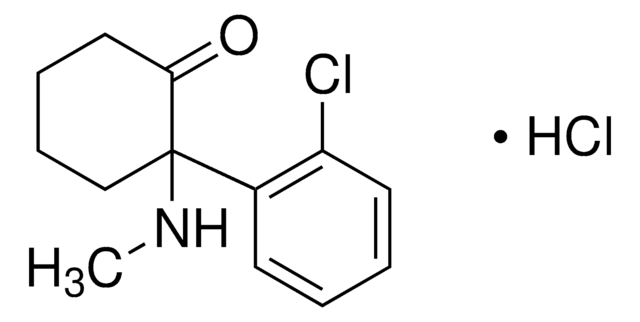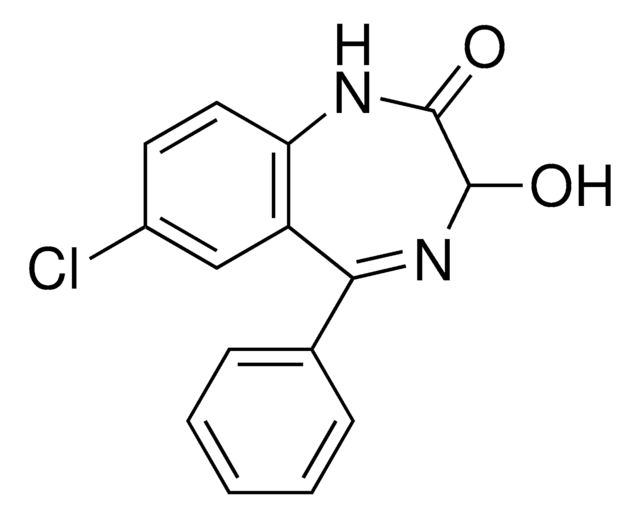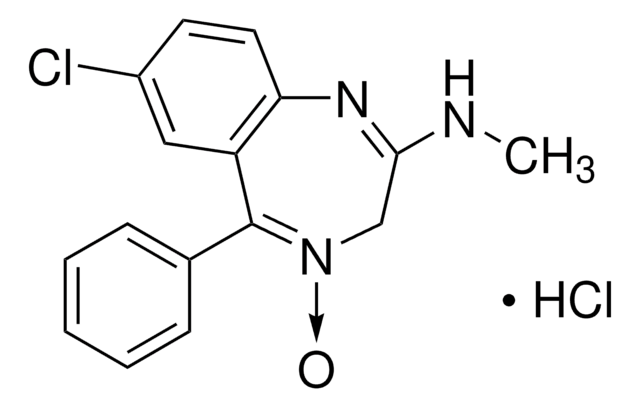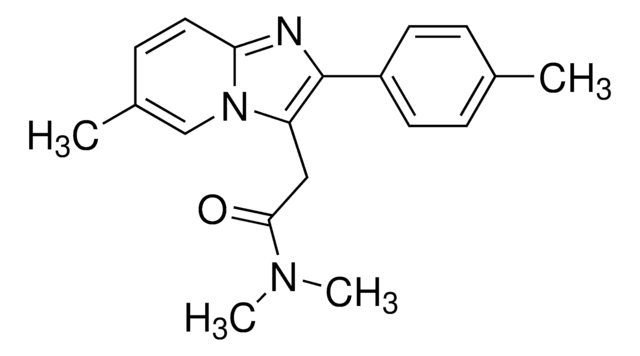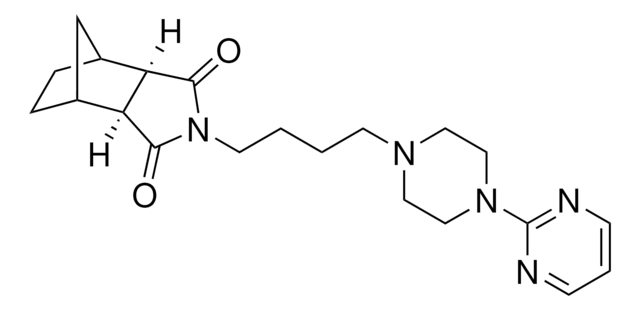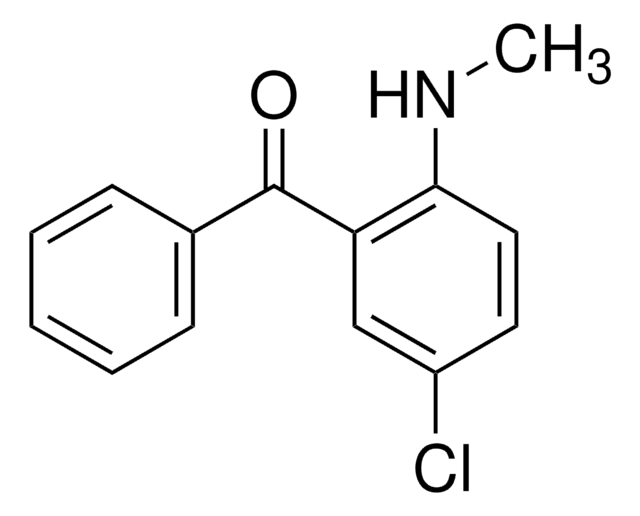D0899
Diazepam
≥98% (TLC), powder, GABAA receptor ligand
Synonym(s):
7-Chloro-1-methyl-5-phenyl-3H-1,4-benzodiazepin-2(1H)-one, Ro 5-2807
About This Item
Recommended Products
product name
Diazepam,
form
powder
Quality Level
drug control
USDEA Schedule IV; Home Office Schedule 4.1; psychotrope (France); kontrollierte Droge in Deutschland; regulated under CDSA - not available from Sigma-Aldrich Canada; psicótropo (Spain); Decreto Lei 15/93: Tabela IV (Portugal)
solubility
45% (w/v) aq 2-hydroxypropyl-β-cyclodextrin: 1.6 mg/mL
DMF: soluble
H2O: slightly soluble
ethanol: soluble
originator
Roche
SMILES string
CN1C(=O)CN=C(c2ccccc2)c3cc(Cl)ccc13
InChI
1S/C16H13ClN2O/c1-19-14-8-7-12(17)9-13(14)16(18-10-15(19)20)11-5-3-2-4-6-11/h2-9H,10H2,1H3
InChI key
AAOVKJBEBIDNHE-UHFFFAOYSA-N
Gene Information
human ... GABRA1(2554) , GABRA2(2555) , GABRA3(2556) , GABRA4(2557) , GABRA5(2558) , GABRA6(2559) , GABRB1(2560) , GABRB2(2561) , GABRB3(2562) , GABRD(2563) , GABRE(2564) , GABRG1(2565) , GABRG2(2566) , GABRG3(2567) , GABRP(2568) , GABRQ(55879)
rat ... Gabra1(29705) , Gabra2(29706)
Looking for similar products? Visit Product Comparison Guide
Application
- as an anxiolyte in pilocarpine protocol.
- in multi-electrode array (MEA) technology
- as a marker for human serum albumin
Biochem/physiol Actions
Features and Benefits
Signal Word
Danger
Hazard Statements
Precautionary Statements
Hazard Classifications
Acute Tox. 3 Dermal - Acute Tox. 3 Oral - Aquatic Chronic 1
Storage Class Code
6.1C - Combustible acute toxic Cat.3 / toxic compounds or compounds which causing chronic effects
WGK
WGK 2
Flash Point(F)
Not applicable
Flash Point(C)
Not applicable
Personal Protective Equipment
Certificates of Analysis (COA)
Search for Certificates of Analysis (COA) by entering the products Lot/Batch Number. Lot and Batch Numbers can be found on a product’s label following the words ‘Lot’ or ‘Batch’.
Already Own This Product?
Find documentation for the products that you have recently purchased in the Document Library.
Customers Also Viewed
Our team of scientists has experience in all areas of research including Life Science, Material Science, Chemical Synthesis, Chromatography, Analytical and many others.
Contact Technical Service

